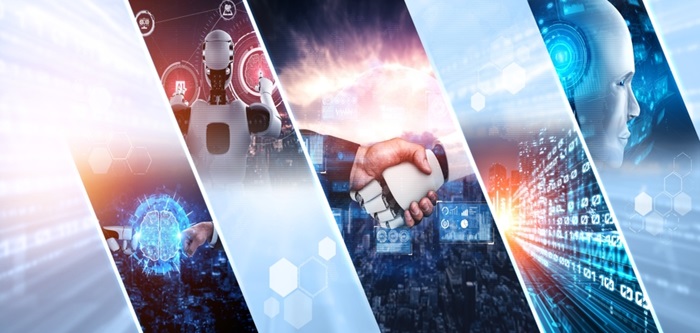
Democratic AI and the Quest for Verifiable Truth: How Absolute Zero Could Change Everything

(Summit Art Creations/Shutterstock)
AI is changing the world—fast. But as it grows more powerful, it also grows more… mysterious. Who built it? Who controls it? Can we trust it? These are the kinds of questions driving a movement toward a new kind of AI—one that’s open, transparent and, above all, honest.
Welcome to the world of Democratic AI and a rising idea called Absolute Zero reasoning. Together, they offer a future where AI doesn’t just guess well—it proves itself.
Even more exciting? These concepts may also mark crucial steps on the path to Artificial General Intelligence (AGI)—AI that can think, reason and learn like a human being.
What Is Democratic AI, and Why Should You Care?
Most AI today is built behind closed doors by a few big tech companies. You don’t get to see the code, control your data or weigh in on how it’s used. That’s the opposite of democratic.
Democratic AI flips that model. It’s about AI built in the open—using open-source tools, shared governance and giving users real control. It’s like going from an authoritarian regime to a digital democracy. And just like democracy, it isn’t perfect—but it’s way more inclusive, accountable and trustworthy.
Democratic AI doesn’t just make AI fairer—it makes it smarter. AGI will likely require access to a wide range of data, human feedback and collective intelligence. Systems built openly are better able to integrate that feedback at scale, enabling more generalizable reasoning, a key feature of AGI.
Enter Absolute Zero: AI That Can Prove It’s Telling the Truth
Let’s face it—today’s AI can be a little… slippery. It can sound confident while making things up, a phenomenon known as hallucination. Absolute Zero reasoning aims to fix that. It’s a concept where AI outputs aren’t just statistically likely—they’re grounded in verifiable facts and logical reasoning. Imagine an AI that doesn’t just seem right—it can show you why it’s right, step by step. This approach leans on knowledge graphs, structured data and logical inference, not just guesswork and patterns.
Why does this matter for AGI? Because general intelligence requires understanding, not just pattern recognition. AGI must reason across diverse domains and justify its logic—capabilities that statistical models alone struggle with. Absolute Zero reasoning could form the backbone of AGI’s cognitive architecture, ensuring it doesn’t just guess—it thinks.
Together They’re Stronger: A Perfect Match
Here’s where it gets interesting: Democratic AI creates the perfect environment for Absolute Zero to thrive. If code and data are open, people can scrutinize how AI systems work. That means more eyes, better ideas and fewer blind spots.
And when governance is participatory, we can create ethical rules that AI actually follows. Even better, with transparency and user control built in, you get to understand and verify the AI’s reasoning—no PhD required.
Combining openness with reasoning power is exactly what AGI needs. It ensures that systems learn not just from data, but also from collective human feedback and critique, much like how a human learns by engaging with the world. These concepts don’t just guide development—they shape AGI’s moral compass.
Didn’t AlphaZero Already Do This? Sort of.
Remember AlphaZero, the AI from DeepMind that crushed human players in Go and chess? It taught itself to win through self-play, without human data. That’s impressive—and kind of similar to Absolute Zero reasoning.
But here’s the catch: AlphaZero operated in the neat, rule-based worlds of games. Real life is messy. For AGI to reason clearly about the world we live in, it needs to connect to real, verifiable information. That’s the leap Absolute Zero is trying to make.
What AlphaZero showed us is the power of general learning. But Absolute Zero reasoning aims to bring that power into the real world—where ambiguity, nuance and verification are non-negotiable.
Can We Teach AI to Learn the Right Way?
One way to train AI is through Reinforcement Learning (RL)—you give it rewards for good behavior and let it learn what works. But if those rewards are vague or flawed, things go off the rails fast.
That’s why verifiable rewards matter. Instead of training AI to just “win” in a system it barely understands, we teach it to succeed based on truth—measurable, reliable and grounded in real-world evidence.
This is a crucial upgrade for AGI development. Without verifiable rewards, AGI risks optimizing for misleading or misaligned outcomes. But with clear, evidence-based goals, it can learn behaviors aligned with reality—moving us closer to safe, interpretable general intelligence.
So Who’s on Board—and Who Isn’t?
Not everyone’s jumping on the Absolute Zero bandwagon just yet.
Companies like Hugging Face, EleutherAI and Wikidata are leading the charge toward open and trustworthy AI. They believe in sharing tools, knowledge and results with the world.
But companies built around closed systems and proprietary data? Not so much. Still, even the big players like Google and Meta are starting to talk more about trust, transparency and explainability.
For AGI to succeed—and be safe—it must be verifiable, auditable and community-guided. These open-source pioneers are setting the blueprint.
Wrapping Up: The Future AI we Can All Believe In
If AI is going to help us solve big problems—climate change, healthcare, education—it can’t be a black box. We need AI that earns our trust. That’s why Democratic AI and Absolute Zero reasoning are so exciting.
They represent a future where AI is:
- Open by design
- Verifiable by logic
- Guided by real human values
- And built to learn like us, not just from us
In short, it should be AI that works for everyone—and maybe even one day, becomes as wise and adaptable as we are.
And in a world full of hype, that’s the kind of progress we can get behind.
About the author: As President and Principal Analyst of the Enderle Group, Rob Enderle provides regional and global companies with guidance in how to create credible dialogue with the market, target customer needs, create new business opportunities, anticipate technology changes, select vendors and products, and practice zero dollar marketing. For over 20 years Rob has worked for and with companies like Microsoft, HP, IBM, Dell, Toshiba, Gateway, Sony, USAA, Texas Instruments, AMD, Intel, Credit Suisse First Boston, ROLM, and Siemens.
global companies with guidance in how to create credible dialogue with the market, target customer needs, create new business opportunities, anticipate technology changes, select vendors and products, and practice zero dollar marketing. For over 20 years Rob has worked for and with companies like Microsoft, HP, IBM, Dell, Toshiba, Gateway, Sony, USAA, Texas Instruments, AMD, Intel, Credit Suisse First Boston, ROLM, and Siemens.
Related Items:
IBM Nearing Quantum Advantage: What It Means for the Future of AI
Correcting an AI Overreaction On DeepSeek, and Emphasizing the Importance of Quality
The Coming Catastrophic Failure Of AI In Business





























